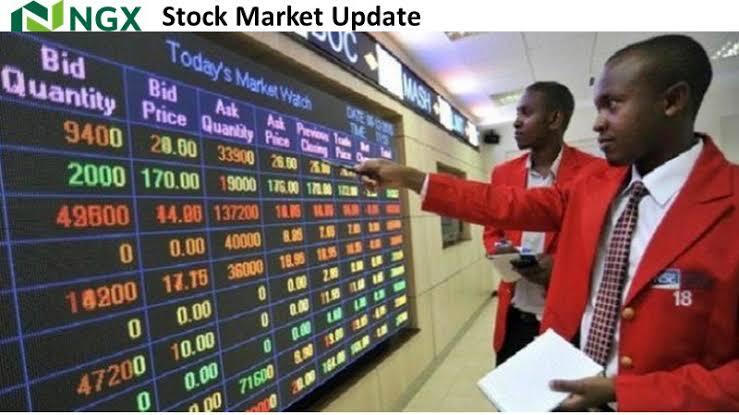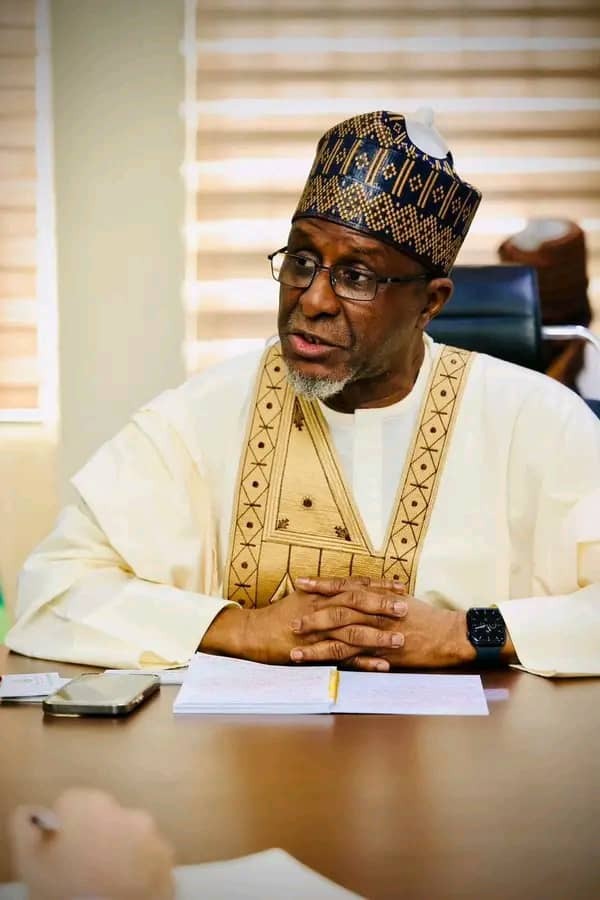Specifically, the Nigerian Exchange Ltd. (NGX) market capitalisation increased by 0.08 per cent to N66.769 trillion from an opening of N66.717 trillion recorded on Friday.
The All-Share Index also rose by 0.08 per cent, or 83 points, to close at 106,621.91, up from 106,538.72 posted on Friday.
The positive performance, in spite of cautious trading, was driven by gains in some banking and consumer goods stocks such as First City Monument Bank, Access Corporation and Dangote Sugar.
The market breadth closed positive, with 32 gainers and 27 losers.
On the gainers’ chart, Eterna increased by 9.96 per cent, to close at N37.55, while Transnational Corporation gained by 9.91 per cent, to close at N51.55 per share.
Also, First City Monument Bank soared by 9.89 per cent, to close at N10 and Africa Prudential gained by 9.85 per cent, to close at N36.25 per share.
ABC Transport increased by 8.67 per cent, to close at N1.63 per share.
Conversely, VFD Group led the losers’ chart with a 9.92 per cent decline, closing at N47.20, followed by International Energy Insurance, which lost 8.72 per cent, closing at N1.78 per share.
Also, Cadbury Nigeria declined by eight per cent, closing at N23, while Cornerstone Insurance dropped by 7.89 per cent, closing at N2.92 per share.
Honeywell Flour Mill lost 7.06 per cent, closing at N12.50 per share.
A total of 364.97 million shares, worth N17.628 billion, were exchanged across 14,565 transactions.
This is compared with 349.18 million shares, worth N9.74 billion, exchanged across 11,911 transactions last Friday.
Transactions in Fidelity Bank shares topped the activity chart, with 56.4 million shares worth N970.85 million.
Access Corporation followed with 30.422 million shares valued at N725.48 million, while Zenith Bank sold 27.64 million shares worth N1.33 billion.
Africa Prudential transacted 23.316 million shares valued at N834.19 million, and United Bank for Africa sold 13.102 million shares worth N495.98 million.
Analysts at Vetiva Securities Ltd. said that in spite the modest gain, sentiment remained cautious due to persisting pressures from high fixed income yields.
“Investors continue to selectively engage fundamentally sound equities, but sustained bullish momentum appears unlikely without significant economic catalysts.
“Consequently, we anticipate another mixed session, with continued selective buying countered by profit-taking,” they noted. (NAN)










